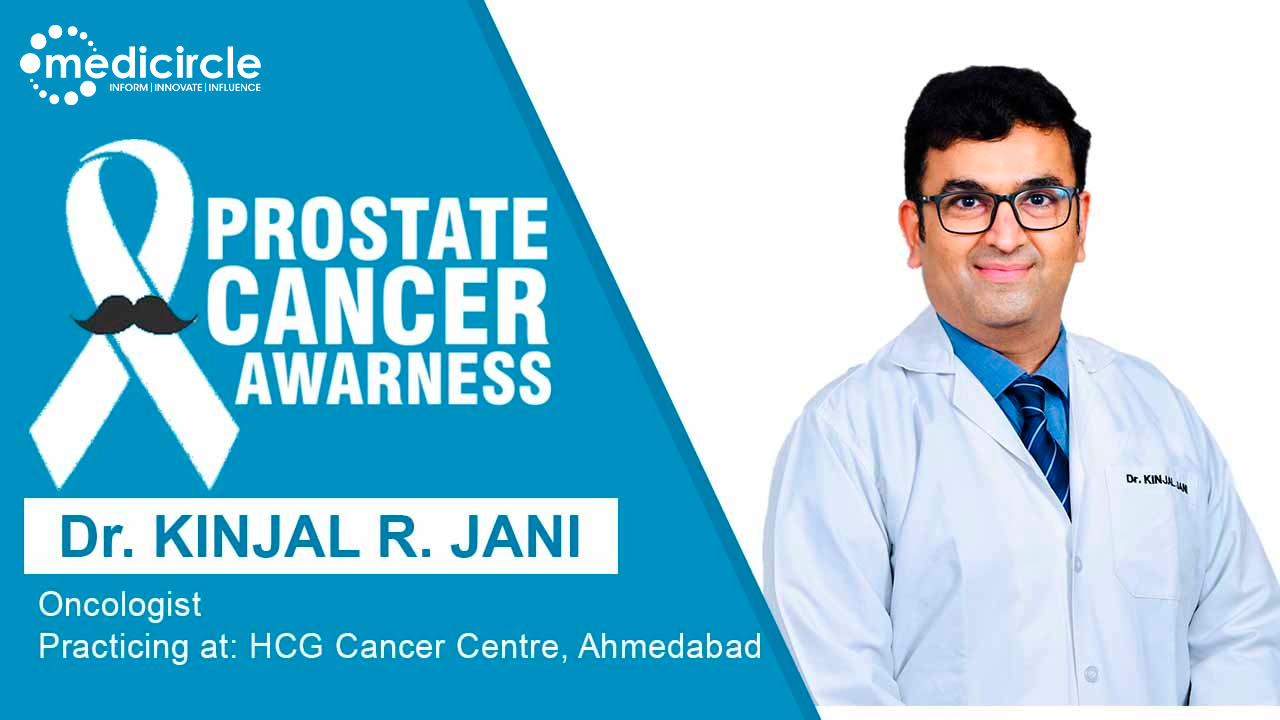Dr Kinjal Jani is well trained in treating all kinds of solid tumours with a special interest in Head & Neck cancers, Breast cancers and Prostate cancers. He is the Director and Head of the Radiation Oncology Department at HCG Cancer Center, Ahmedabad. And also he is the President of the Gujarat Chapter of AROI for his credentials in his profile. He attained Rapid Arc Training in Berlin, Germany in 2011 and Tomotherapy Training in Heidelberg, Germany in 2017.
How Common is Prostate Cancer?
Dr Jani begins, “Every country has different types of cancers prevalent in their boundaries. Prostate cancer is known to be a disease of the West. The USA, Australia and the UK used to see more cases of prostate cancer. This was the case 15 years ago. Nowadays people are more aware of it and so they go for more checkups. That is why the incidence is increasing nowadays.”
“This cancer is of the prostate organ of the body. Since this organ is inside the body, many a time people don't realise that they have this cancer. But any man is at risk of having this cancer. It is believed that of all 8 men, 1 will have the risk of developing this cancer. However, it is not that common in India compared to the USA. But still, the risk is there as prostate cancer is the 2nd biggest reason for cancer deaths in men.”
Signs of Prostate Cancer
Dr Jani says, “The prostate gland is located just below the bladder in men and the symptoms of this disease are related to that area. So when this organ swells, it causes difficulty in passing the urine. This disease happens mostly in the elderly population, after age 60. Blood in urine, pain in the pelvic region, difficulty passing stool are some symptoms of prostate cancer.”
“Many times, this disease can even spread to other parts of the body, like the bones for instance. But the most visible symptom is pain while passing the urine. When one notices this, they must consult a general physician or urologist.”
Treatments available for Prostate Cancer
Dr Jani explains, “Any cancer treatment is given in 3 forms - surgery, radiation therapy or chemotherapy. In surgery, the cause of cancer is physically removed. In radiotherapy, the tumour is burned. In chemotherapy, medicines are used to target and destroy cancer. In prostate cancer, there is one more option of Hormonal Therapy. The male hormone in the body can cause prostate cancer. So with Hormonal treatment, the male hormone is suppressed.”
“The decision of which treatment to administer is based on the stage of cancer. Smaller prostate cancer will be cured by surgery or radiation therapy. If the cancer is in an intermediate stage then radiation or hormonal therapy is used. But if the cancer is widely spread in the body then hormonal therapy and chemotherapy are used.”
How Dangerous is Prostate Cancer?
Dr Jani explains, “Since the prostate is an internal organ we cannot see it. If someone has a tongue tumour or neck tumour, it is visible. Unless you feel the pain sensation while urinating, you would not know that you are having any problem. So it is quite possible that one would only know about this cancer when it has reached a bigger stage. Also, there is a big possibility that it will reach your bones. This is why it is said to be a dangerous disease.”
(Edited by Priyal Shah)

 It is believed that of all 8 men, 1 will have the risk of developing this cancer. Learn about the treatments available for the 2nd biggest reason for cancer deaths in men.
It is believed that of all 8 men, 1 will have the risk of developing this cancer. Learn about the treatments available for the 2nd biggest reason for cancer deaths in men.



















.jpeg)












